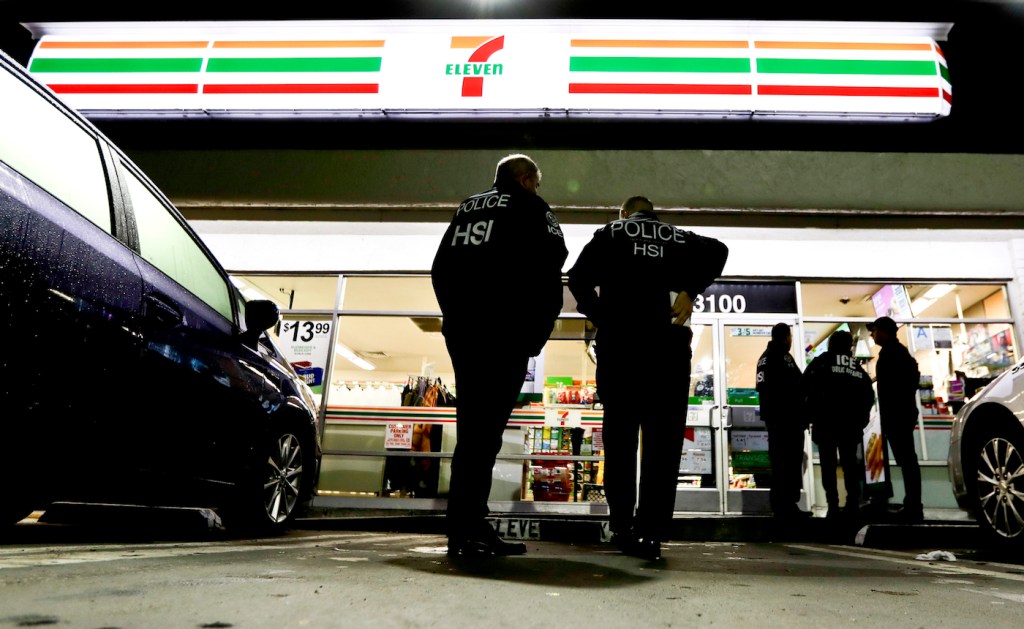How the 7-Eleven immigration raids ‘feed on fear’

Last week, agents from U.S. Immigration and Customs Enforcement raided about 100 7-Eleven stores across the country, demanding green cards from cashiers and hiring records from store owners. The raids led to 21 arrests of people suspected to be undocumented immigrants.
The current presidential administration campaigned on promises of stricter immigration policy. One focus of that messaging has been on safety—specifically, protecting the American people from violent criminals, said Hemanth Gundavaram, associate teaching professor and co-director of the Immigrant Justice Clinic at Northeastern. But the recent 7-Eleven raids had nothing to do with safety, Gundavaram said.
“The people who are being arrested are both contributing to our economy and supporting their families,” Gundavaram said. “These are not the violent criminals the president and his administration at different points has made all undocumented people look like.”
Gundavaram said the raids are likely a scare tactic. There are more efficient ways to ensure a company isn’t hiring undocumented immigrants, he explained, such as by performing audits.
Jacob I. Stowell, associate professor of criminology and criminal justice at Northeastern, agreed. He said the raids exemplify a concept he researches called attrition through enforcement: policies or initiatives that incentivize undocumented immigrants to re-migrate back to their countries of origin, or that discourage people from entering the U.S. illegally at all. Other examples of attrition through enforcement include preventing an undocumented immigrant from opening a bank account or forbidding the children of undocumented workers from attending school, Stowell said.
“The idea is that societies or cities in the U.S. would make conditions so unfavorable for undocumented immigrants that folks will just return home or will be dissuaded from migrating in the first place,” Stowell said.
Since deportation proceedings are handled more like civil cases than criminal ones, defendants are not guaranteed a lawyer, Gundavaram explained. That means the 21 former 7-Eleven employees arrested on suspicion of being in the country illegally would have to hire an attorney or find one to work pro-bono, he said.
“Obviously, that’s going to be very difficult. Lawyers are expensive and legal service organizations are strapped, partly due to some of the policies of this administration, but previous administrations as well,” Gundavaram said.
Deportation is a complex process with serious consequences, Stowell said. In certain occupational sectors, such as meat packing and agriculture, undocumented immigrants represent a significant portion of the workforce, and production levels would be impacted severely in their absence.
“It also breaks kinship and families and removes invaluable resources from communities,” Stowell said.





